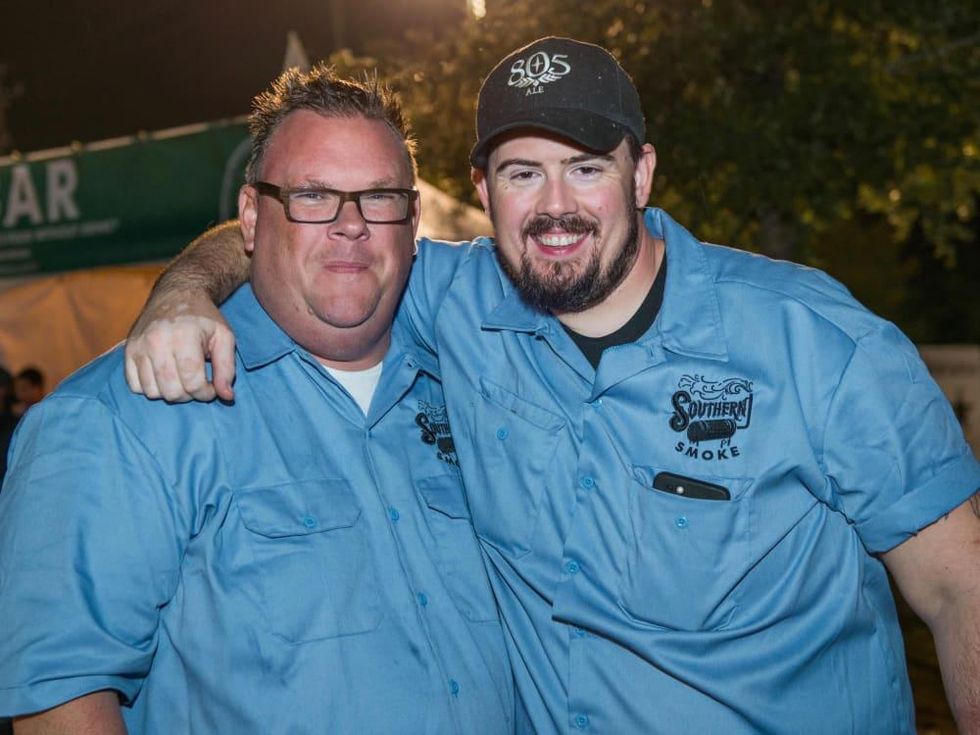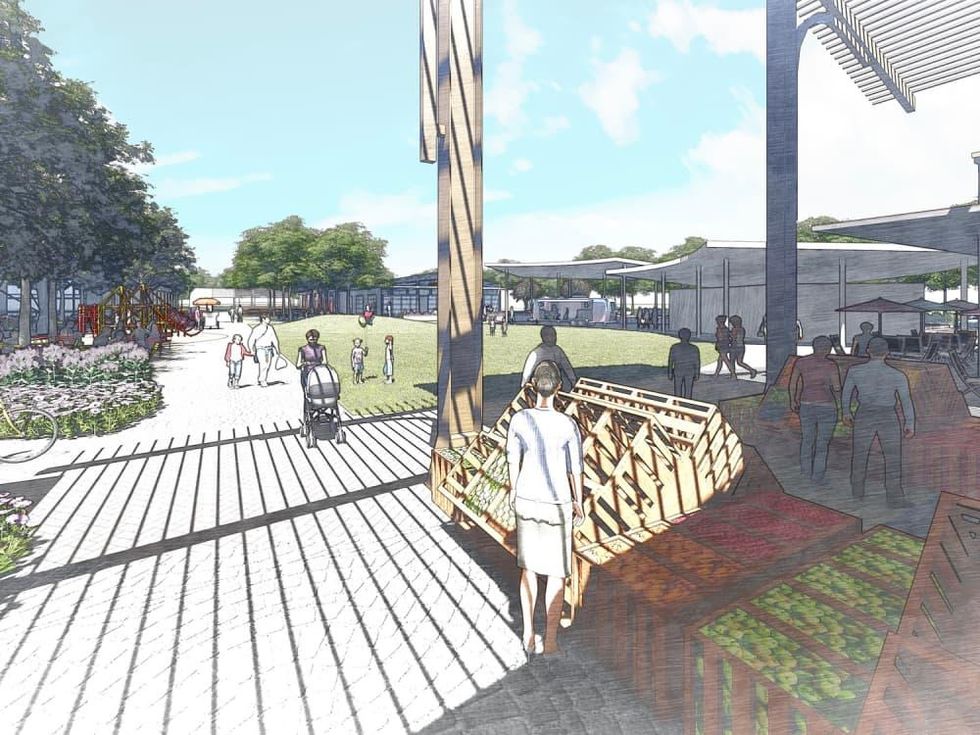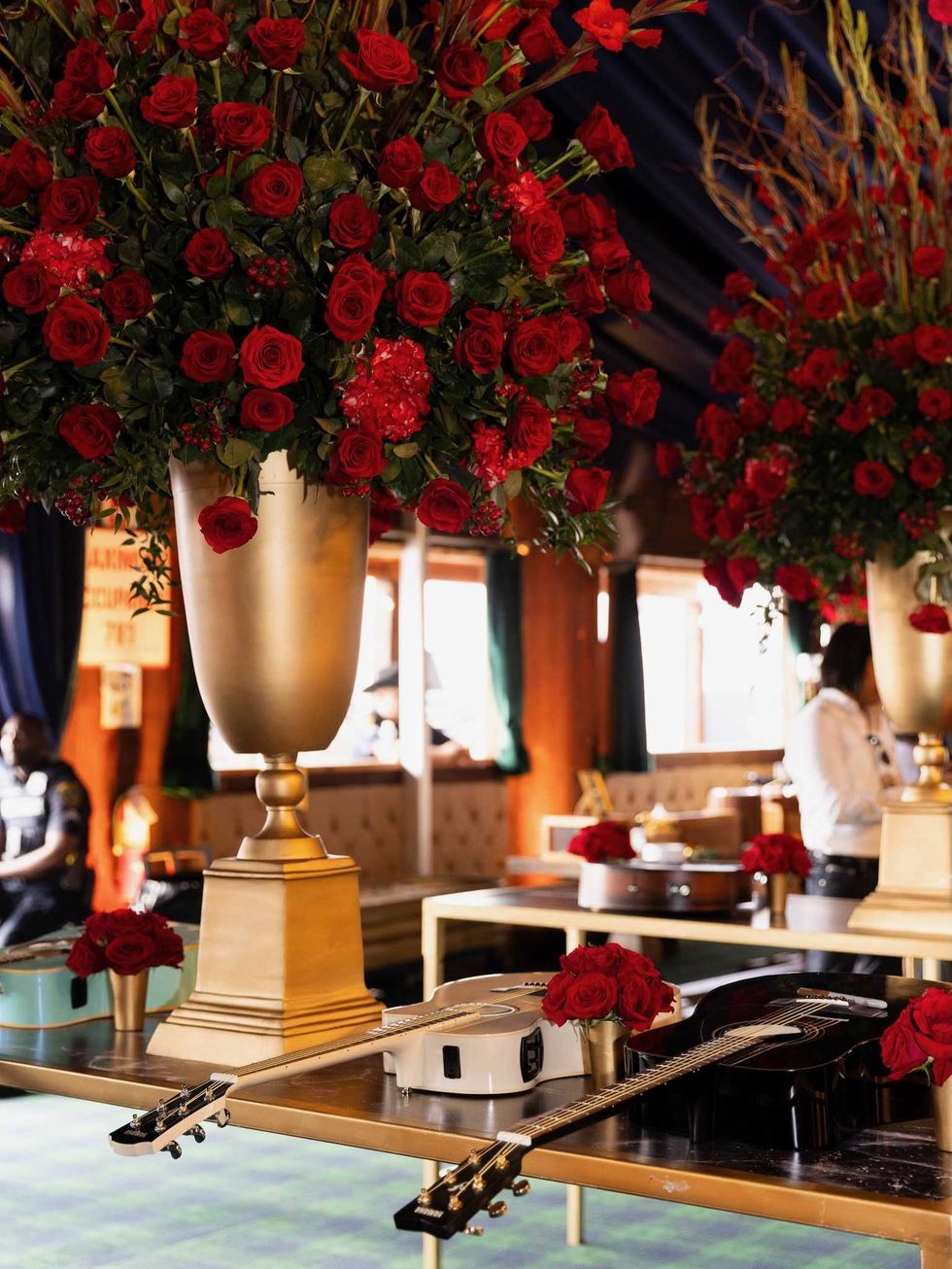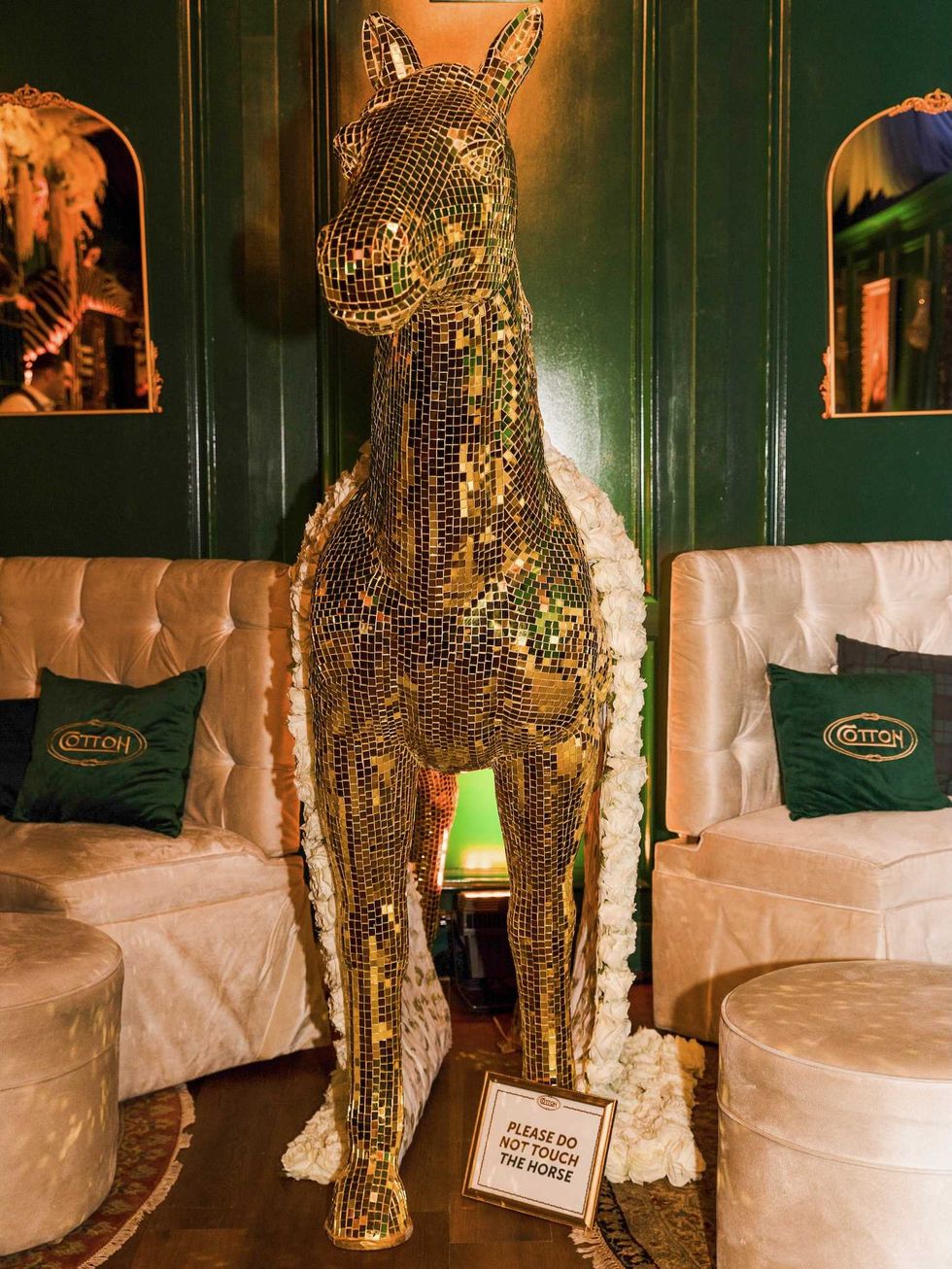Foodie Destination Rising
Developer unveils stunning plan to transform Airline farmers market into a foodie paradise
An ambitious plan is taking shape that will convert a charmingly shabby produce market into a comprehensive destination for food-obsessed locals and visitors.
MLB Capital Partners, a local commercial real estate investment company, has announced its vision for the future of the Houston Farmers’ Market that it purchased earlier this year. Better known as the Canino’s Market after its primary tenant, Canino Produce Co, the almost 18-acre tract on Airline near 610 will be transformed into a facility that provides a “destination retail experience offering more diversified products, renovated facilities and community programming,” according to a press release.
MLB founding partner Todd Mason tells CultureMap that he first developed an interest in the market back in 2004 or 2005 but became more serious about developing a vision and completing the transaction over the last year-and-a-half. The goal is to renovate the market in a way that preserves the quality Mason describes as its "edginess" while improving the property's comfort and usability by, for example, separating consumer and retail traffic so that patrons don't have to dodge trucks and forklifts while they're shopping.
"When you really start talking to people about what they like, what they like is there’s a lot of different cultures and there are things you can get and see there that you can’t get anywhere else," Mason says. "We’ll keep those tenants. I don’t think we’ll have to charge them much if any more rent. We’ll still have an open air market with vendors selling directly to you . . . All of that experience will still be there, but it will be a cleaner, safer environment."
Slated to take place over three years, the changes include adding air conditioning to both warehouses, building an outdoor market in the middle of the property, improving parking and mobility, and creating dedicated green spaces that “will serve as a setting for community programming, such as chef demonstrations, wine tastings, local entertainment, and more.” All in, Mason estimates the facility will add between 50 and 60,000 square feet of retail space at a total cost of between $8 and $10 million.
The goal is to develop a facility like Philadelphia’s Reading Terminal Market or the Pike Place Market in Seattle that brings together food purveyors such as butchers, bakers, and fishmongers, with additional retail vendors and places to eat and drink. To help them achieve that goal, MLB has tapped James Beard Award-winning chef Chris Shepherd and his business partner Kevin Floyd to serve as food and beverage consultants for the project.
“Our main goal is to give input and insight on all of the things food and beverage related: prospective tenant mix, logistics, and layout,” Floyd tells CultureMap. They’re also consulting on the project’s design in order to “help the architects and designers keep in mind the behind-the-scenes needs of a food and beverage tenant.”
Floyd says that he and Shepherd have developed some ideas about what sort of tenants they would like to see occupy the market’s spaces, but they’re waiting for the landlord to determine what leases will cost before they start approaching specific people and companies to gauge their interest in coming on board. While noting that they haven’t developed specific plans for their own role as vendors in the space, he anticipates they are likely to join the project permanently.
“We have a lot of talent in our organization,” Floyd says. “What I think would be very realistic is if we’re in a situation where we need to fill a hole in the tenant mix, Chris and I would take a space or two.”
Other participants in the project include landscape architecture firm Clark Condon Associates, Studio RED Architects, Houston-based consulting firm Gunda Corporation, and Arch-Con Construction. Together, they have developed and will implement the plan. To add a layer of complexity, the renovations will take place while the market is operating.
"There’s a lot of small businesses out there," Mason says. "If I shut them down for three months, they won’t be in business. I just can’t do that."
While some might be concerned about the market losing its charm, the project has much to offer food-obsessed Houstonians. For all of its diversity as a dining city, Houston has lacked this style of destination market that's as appealing to people who live here as it is to culinary-minded tourists. If it comes together as the partners intend it to, the new Houston Farmers' Market will become an essential part of the city’s civic culture.












